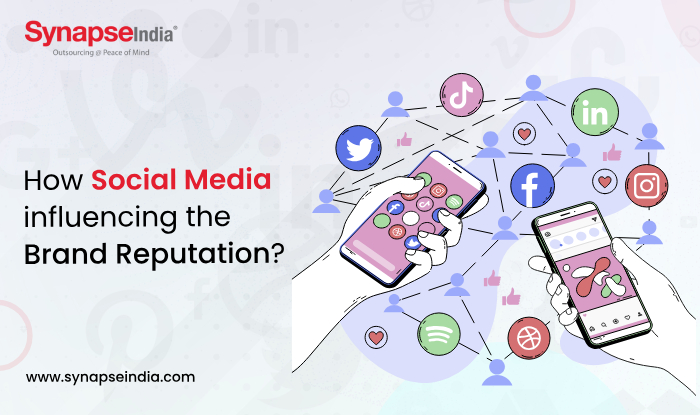 16 May 2024
16 May 2024
Being an essential tool for online presence, social media helps brands to manage their reputation. In present times, a single bad review or image can make your reputation negative. It is right that those tweets, Instagram posts, and single reviews can make or break your company. Now it’s important to have a good online presence where brands can avoid having conversations about their reputation. Social media allows brands to connect with their audience to build trust, and loyalty, and connect with their customers. So what is brand reputation and how does social media influence it? Let’s study the importance of social media's influence and enhancing the brand reputation.

The brand management process is the monitoring and managing of your company in the public domain. It reflects how your customers perceive your business, its profits, and values. Your brand reputation justifies the company’s past reflections and actions that set future expectations. Reputation management of any brand proactively responds to potential threats and seizes how opportunities boost your online presence. It is crucial to have a strong brand reputation as it helps your business to flourish in the competitive market. Having a strong reputation makes your brand successful and makes it competitive in the market. It entails actively controlling and shaping public perception of a brand to make sure that it is consistent with the company's intended image and values, both online and offline. This entails keeping an eye on news stories, social media mentions, online reviews, and other types of feedback to spot and resolve any unfavorable impressions or reputational hazards. Businesses may develop loyalty, credibility, and trust with their target market by actively managing their brand reputation. This will ultimately lead to long-term success and sustainability.
Social media acts as a potent amplifier of customer experiences and opinions, which has a significant effect on brand reputation. Positive social media interactions can improve a brand's reputation by raising awareness, engagement, and brand loyalty. On the other hand, unfavorable remarks or viral events can quickly damage a brand's reputation by rapidly propagating throughout social media platforms and affecting public opinion. As a result, to successfully handle possible emergencies, swiftly answer questions from customers, and resolve concerns, brands need to regularly watch social media channels. Brands may use social media to secure and enhance their reputation in the digital age by being transparent, genuinely interacting with their audience, and producing high-quality content.
To have an effective social media reputation management provides companies with several advantages, such as:
Businesses may sustain a positive brand image by cultivating trust and credibility with customers and stakeholders through effective social media reputation management.
Social media interaction with customers strengthens bonds and creates a feeling of community, which increases customer engagement and loyalty.
Businesses that actively watch social media can spot possible problems early on and take action to resolve them before they become serious emergencies. Negative comments or crises can be handled quickly and skillfully to lessen reputational harm.
Good relationships and user-generated content on social media help brands become more visible and accessible, which in turn helps companies grow their online presence and draw in new clients.
Keeping up a positive social media presence helps companies stand out from the competition and draw in clients who respect responsiveness, honesty, and transparency.
All things considered, strong social media reputation management is critical to creating and maintaining a favorable brand image, encouraging client loyalty and trust, and propelling company success in the digital era.

The world today is significantly influenced by social media when it comes to brand reputation. Businesses can use it as a potent tool to engage with their audience, forge connections, and sculpt public opinion. Businesses may build credibility and trust, improve brand reputation, and encourage positive engagement with their target audience by utilizing social media efficiently. To preserve a positive brand image, businesses must actively manage their social media presence, keep an eye on conversations, and reply to criticism right away. Ultimately, companies can position themselves for long-term success in a market that is becoming more and more competitive by comprehending and utilizing the impact of social media on brand reputation.

